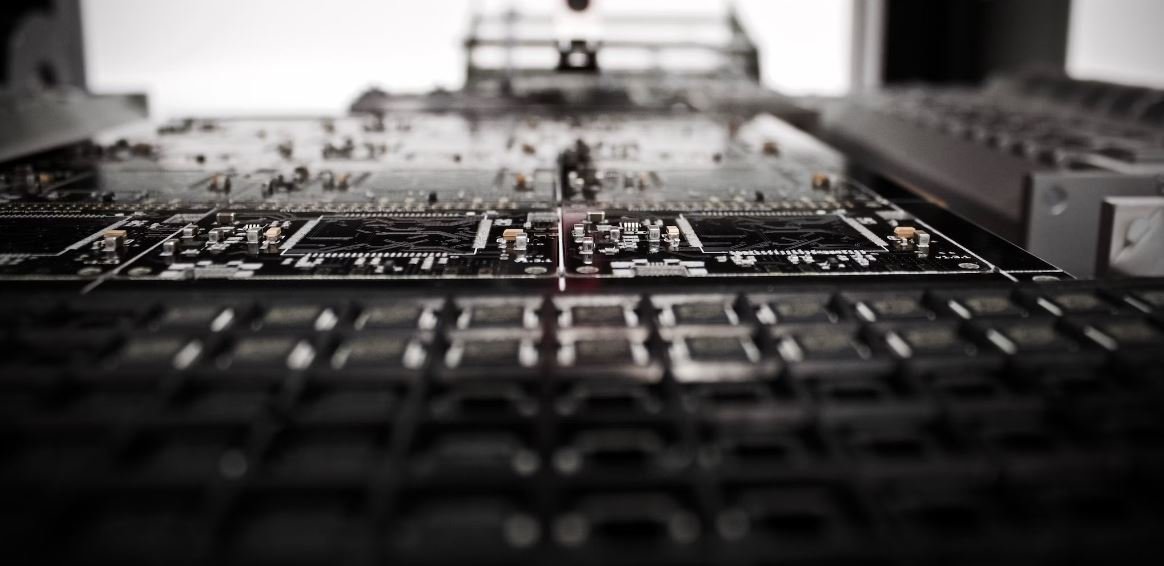AI Applications Areas
Artificial Intelligence (AI) is revolutionizing various fields and industries, enabling computers and machines to perform tasks that previously required human intelligence. From healthcare to finance, AI has a wide range of applications areas that are transforming the way we live and work. In this article, we will explore some of the key AI application areas and the impact they have on our lives.
Key Takeaways:
- AI has immense potential and is reshaping various industries and domains.
- From healthcare to finance, AI is revolutionizing the way we work and live.
- AI-powered technologies are enhancing productivity, accuracy, and decision-making.
- AI applications range from automation to personalized customer experiences.
1. Healthcare:
AI is making significant strides in the healthcare industry, contributing to improved diagnostics, personalized medicine, and patient care. It has the potential to analyze vast amounts of medical data, detect patterns, and provide insights, aiding early disease detection and treatment planning. For instance, AI algorithms can examine medical images such as X-rays and MRIs with remarkable accuracy, assisting radiologists in the diagnosis process.
*Artificial Intelligence enhances medical diagnostics, enabling earlier and more accurate identification of diseases.*
2. Finance:
The financial industry heavily relies on data analysis and decision-making. AI is playing a crucial role in this domain by automating various processes, predicting market trends, managing risks, and enhancing customer experiences. Machine learning algorithms enable financial institutions to detect fraudulent transactions, manage investments, and provide personalized financial advice to customers based on their profiles and goals.
*Artificial Intelligence automates financial processes, facilitates data analysis, and improves predictive capabilities, empowering financial institutions and customers.*
3. Manufacturing and Automation:
In the manufacturing sector, AI technologies are transforming traditional production lines into smart, automated systems. Robots and machines equipped with AI capabilities can perform complex tasks with precision and accuracy, resulting in increased efficiency and quality control. AI-powered systems can also analyze real-time data and make autonomous decisions to optimize production processes and maintenance activities.
*Artificial Intelligence revolutionizes manufacturing by automating processes, improving efficiency, and enabling real-time decision-making.*
4. Customer Service and Experience:
AI applications have reshaped the world of customer service, providing personalized experiences and efficient support. Virtual assistants, chatbots, and voice recognition systems powered by AI can understand and respond to customer queries, provide recommendations, and process transactions, 24/7. These AI-powered tools enhance customer satisfaction, reduce response times, and provide businesses with valuable insights about customer preferences and behaviors.
*Artificial Intelligence-driven customer service tools ensure round-the-clock support and personalized experiences, leading to higher customer satisfaction.*
AI Impact and Growth:
AI is rapidly expanding across various industries, benefiting businesses, individuals, and society as a whole. The market for AI is projected to grow at an unprecedented pace, with significant investments and advancements in research and development. Table 1 presents the market size and growth rate of AI across different industry segments:
| Industry | Market Size (USD, billions) | Growth Rate |
|---|---|---|
| Healthcare | 19.9 | 40.2% |
| Finance | 9.2 | 37.1% |
| Manufacturing | 12.5 | 32.8% |
| Retail | 8.9 | 29.7% |
Table 2 highlights some of the key benefits and challenges associated with AI adoption:
| Benefits | Challenges |
|---|---|
|
|
5. Other AI Applications:
Apart from the above-mentioned domains, AI is making strides in other areas as well. It is playing a significant role in transportation by enabling autonomous vehicles and optimizing traffic flow. AI-powered virtual assistants are becoming more proficient in understanding and responding to human natural language, enhancing communication and productivity. AI also finds applications in agriculture, energy management, cyber-security, and many more fields.
*Artificial Intelligence has far-reaching applications, benefiting industries such as transportation, agriculture, and cyber-security, among others.*
As AI continues to evolve and expand, it is crucial to ensure responsible and ethical development and deployment. Governments, organizations, and individuals must collaborate to address any potential risks and challenges associated with AI adoption. With the right approach, AI has the potential to transform industries, improve lives, and create a future where intelligent machines work alongside humans.

Common Misconceptions
Misconception 1: AI will replace all human jobs
One common misconception about AI is that it will completely replace human jobs, leading to widespread unemployment. However, the reality is that AI is more likely to augment human capabilities rather than outright replace them. While certain tasks can be automated, AI is primarily designed to work alongside humans, assisting in complex decision-making, data analysis, and improving overall efficiency.
- AI enhances productivity and expands job opportunities in many industries.
- Human skills like creativity, critical thinking, and empathy are still valuable and cannot be replicated by AI.
- The need for human oversight and ethical considerations are crucial when implementing AI systems.
Misconception 2: AI is only beneficial for large corporations
Another misconception is that AI is only beneficial for big corporations with substantial resources. In reality, AI has a wide range of applications across industries, benefiting both large companies and smaller enterprises. With advancements in technology and the availability of AI tools and platforms, businesses of all sizes can leverage AI to improve operations, enhance customer experience, and gain a competitive edge.
- AI can streamline processes and reduce costs for small and medium-sized businesses.
- Startups can utilize AI algorithms to analyze data and make data-driven decisions.
- AI-powered chatbots can provide excellent customer service even for small online businesses.
Misconception 3: AI is only used in robotics
Many people associate AI solely with robotics and machines, assuming that AI is primarily used in manufacturing or assembly line processes. However, AI is utilized in various other fields beyond robotics. From healthcare and finance to marketing and transportation, AI finds application in diverse areas, improving efficiency, accuracy, and decision-making.
- AI in healthcare can assist in diagnosing and treating diseases, enabling personalized medicine.
- AI algorithms can optimize financial investments and detect fraudulent activities.
- AI-powered recommendation systems are commonly used in marketing and e-commerce platforms.
Misconception 4: AI will have human-like consciousness
There is a common belief that AI will eventually develop human-like consciousness and possess emotions and intentions. However, this is more of a misconception fueled by science fiction rather than reality. AI, as we understand it today, operates based on programmed algorithms and neural networks. It lacks self-awareness, consciousness, and subjective experiences.
- AI operates on predefined rules and patterns and doesn’t possess personal opinions or feelings.
- AI remains a tool created and controlled by humans, incapable of having its own goals.
- Ethical considerations are necessary, but concerns about AI turning against humans like in movies are unfounded.
Misconception 5: AI is a single technology
Contrary to popular belief, AI is not a single technology or a specific tool. Instead, it encompasses a broad range of techniques and applications. AI includes machine learning, deep learning, natural language processing, computer vision, and more. Each of these techniques serves different purposes and has specific strengths in solving various problems.
- Machine learning is ideal for pattern recognition and prediction tasks.
- Natural language processing enables AI systems to understand and generate human language.
- Computer vision allows AI systems to interpret and analyze visual data.

Table: AI Applications in Healthcare
In recent years, artificial intelligence (AI) has gained significant momentum in the healthcare industry. This table showcases various AI applications that are transforming healthcare, such as medical image analysis, virtual health assistants, predictive analytics, and robotic surgeries.
| AI Application | Description |
|---|---|
| Medical Image Analysis | AI algorithms are used to analyze medical images for early diagnosis and identification of diseases. |
| Virtual Health Assistants | AI-powered virtual assistants provide personalized and on-demand healthcare advice and support to patients. |
| Predictive Analytics | AI models analyze large datasets to identify patterns and make predictions for disease prevention and treatment outcomes. |
| Robotic Surgeries | AI enables precision and accuracy in surgical procedures through robotic systems controlled by expert surgeons. |
Table: AI Applications in Education
The integration of AI in education has brought forth numerous advancements to enhance learning experiences. This table encompasses AI applications in education, including intelligent tutoring systems, personalized learning platforms, automated grading systems, and educational chatbots.
| AI Application | Description |
|---|---|
| Intelligent Tutoring Systems | AI systems provide personalized guidance and feedback to students, adapting to their individualized learning styles and paces. |
| Personalized Learning Platforms | AI algorithms tailor educational content and resources according to students’ preferences, abilities, and progress. |
| Automated Grading Systems | AI automates the grading process, reducing the burden on teachers and providing rapid feedback to students. |
| Educational Chatbots | AI-powered chatbots assist students with queries, offering immediate responses and 24/7 support. |
Table: AI Applications in Transportation
The transportation industry has witnessed significant advancements through the integration of AI technologies. This table highlights AI applications in transportation, such as autonomous vehicles, traffic management systems, predictive maintenance, and smart logistics.
| AI Application | Description |
|---|---|
| Autonomous Vehicles | AI enables self-driving vehicles by processing real-time data from sensors and making intelligent decisions. |
| Traffic Management Systems | AI optimizes traffic flow by analyzing data from cameras and sensors, reducing congestion and improving safety. |
| Predictive Maintenance | AI predicts equipment failure in transportation systems, allowing for proactive maintenance and preventing costly delays. |
| Smart Logistics | AI streamlines supply chain management and logistics operations, enhancing efficiency and optimizing delivery routes. |
Table: AI Applications in Finance
The financial industry has embraced AI for its capability to automate processes, detect patterns, and make informed decisions. This table showcases AI applications in finance, including fraud detection, algorithmic trading, credit scoring, and virtual financial advisors.
| AI Application | Description |
|---|---|
| Fraud Detection | AI algorithms analyze patterns in financial data to identify potential fraudulent activities, protecting against financial losses. |
| Algorithmic Trading | AI systems automate stock trading based on market conditions and historical data, executing trades with high precision and speed. |
| Credit Scoring | AI models assess creditworthiness by analyzing various financial factors, providing more accurate risk assessments for loans and credit decisions. |
| Virtual Financial Advisors | AI-powered virtual advisors assist individuals in managing their finances, offering personalized investment strategies and guidance. |
Conclusion
Artificial intelligence has permeated various industries, revolutionizing the way businesses operate and transforming society as a whole. In healthcare, education, transportation, and finance, AI applications have the potential to solve intricate problems, improve efficiency, and deliver better services. This constant advancement of AI opens up immense opportunities for innovation and growth across these sectors. As technology continues to evolve, the integration of AI in mainstream applications will fuel progress and reshape industries for the better.
Frequently Asked Questions
AI Applications Areas
What are some common applications of artificial intelligence (AI)?
How is artificial intelligence used in natural language processing (NLP)?
What is computer vision in the context of artificial intelligence (AI)?
How do virtual assistants utilize artificial intelligence?
What are recommendation systems and how do they use artificial intelligence?
In what ways are robotics integrated with artificial intelligence?
What does predictive analytics involve in the context of AI?
How is artificial intelligence applied in healthcare?
What are the potential ethical implications of AI applications?
Are there any limitations to current AI technologies?





